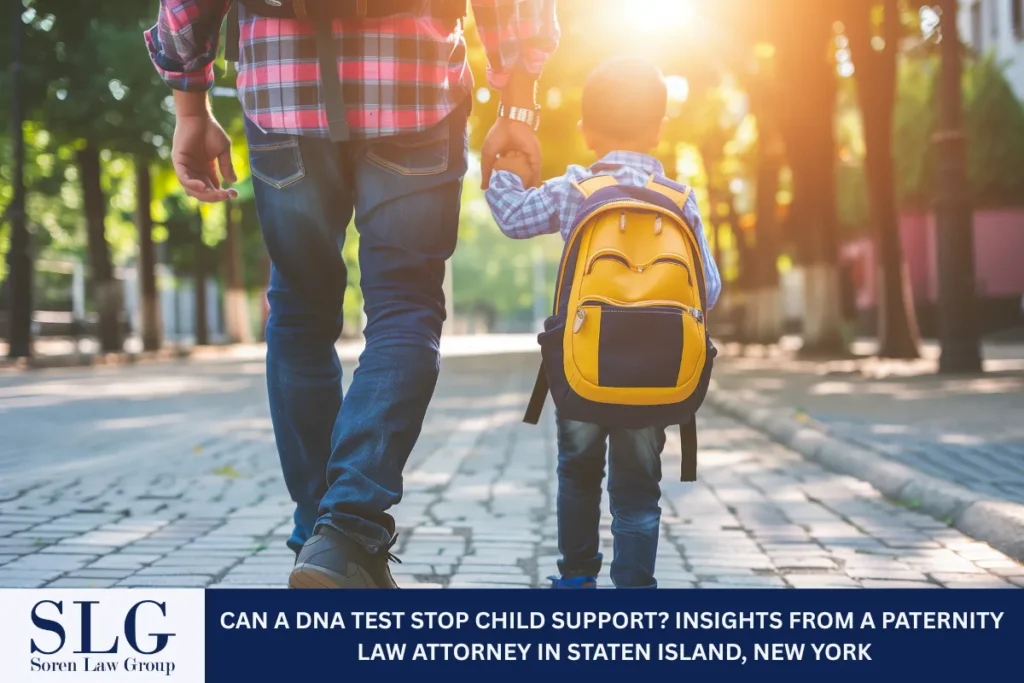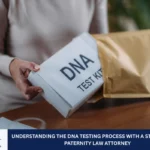Introduction to DNA Testing and Child Support
Understanding whether a DNA test can impact child support obligations requires insight into the complex relationship between biological proof and legal responsibility. A paternity law attorney often navigates this intricate area of family law, especially in Staten Island, where legal processes must align with New York State regulations.
DNA testing provides scientific evidence of whether a man is the biological father of a child. However, legal paternity and biological paternity are not always the same in the eyes of the court. A man may be legally responsible for supporting a child even if DNA proves he is not the biological parent. This disconnect between genetics and law raises critical questions about fairness, responsibility, and parental rights—issues that are especially relevant when determining the future of child support.
Understanding Legal Paternity in New York
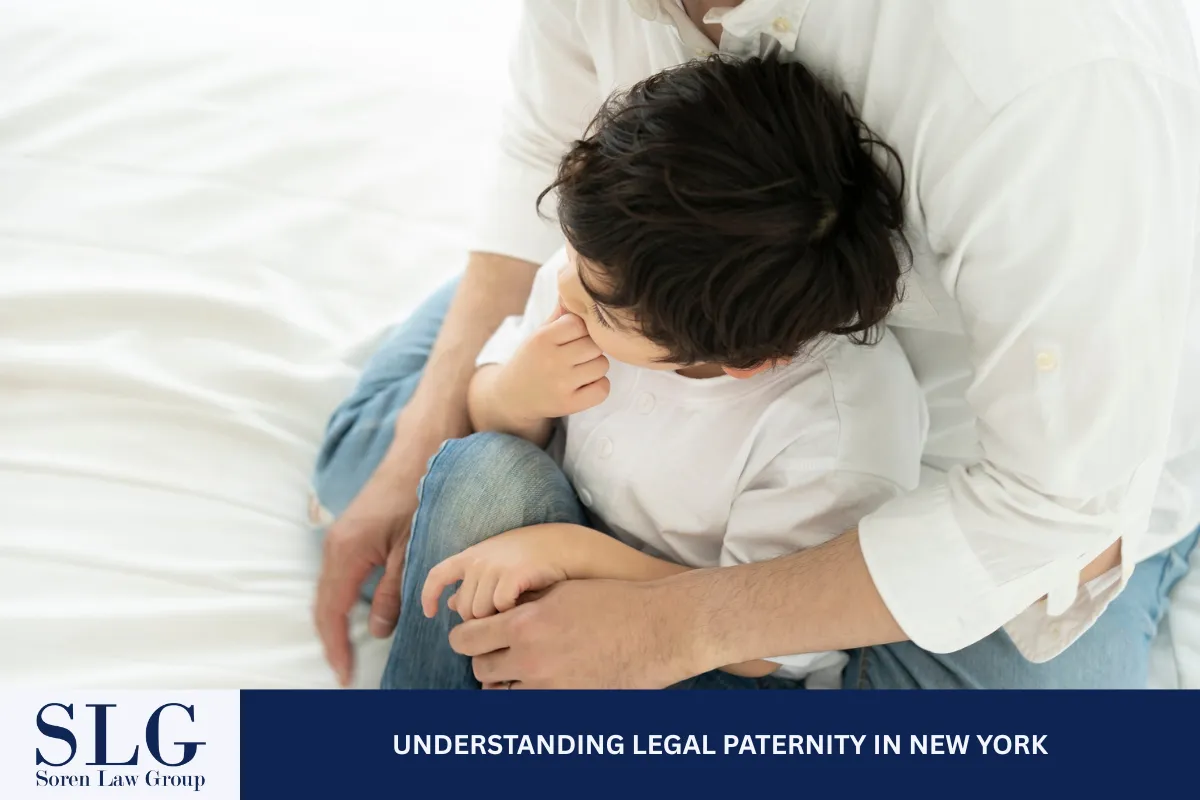
Legal paternity refers to the recognition of a man as a child’s legal father, which may or may not align with biological truth. In New York, establishing paternity is necessary before any legal decisions about custody, visitation, or child support can be made. Once legal paternity is established, it carries the same weight as biological connection in the eyes of the law.
This recognition is significant because it establishes the foundation for legal rights and responsibilities. A man who is determined to be a child’s legal father must financially support the child, may be granted custody or visitation rights, and may be involved in making major life decisions for the child. Legal paternity can be established voluntarily or through a court process, and reversing it is not always straightforward—even when DNA evidence is involved.
How Paternity is Legally Established in Staten Island
In Staten Island, as part of New York State, there are several legal pathways through which paternity can be established. Each route comes with its own legal implications and consequences for child support.
One common method is the signing of a Voluntary Acknowledgment of Paternity (AOP) form. This document, often completed at the hospital after a child’s birth, allows an unmarried man to affirm he is the father. Once signed, the AOP has the same legal standing as a court order and is enforceable unless challenged within a specific timeframe.
Paternity can also be determined through a Family Court proceeding. In these cases, the court may order DNA testing to assess a biological connection. If the results show a 95% or higher probability of fatherhood, the court may establish paternity based on that evidence.
However, if a man is married to the child’s mother at the time of birth, he is presumed by law to be the father. This legal presumption can only be overturned through a formal court challenge that meets strict legal standards.
Can a DNA Test Legally Change Child Support Obligations?
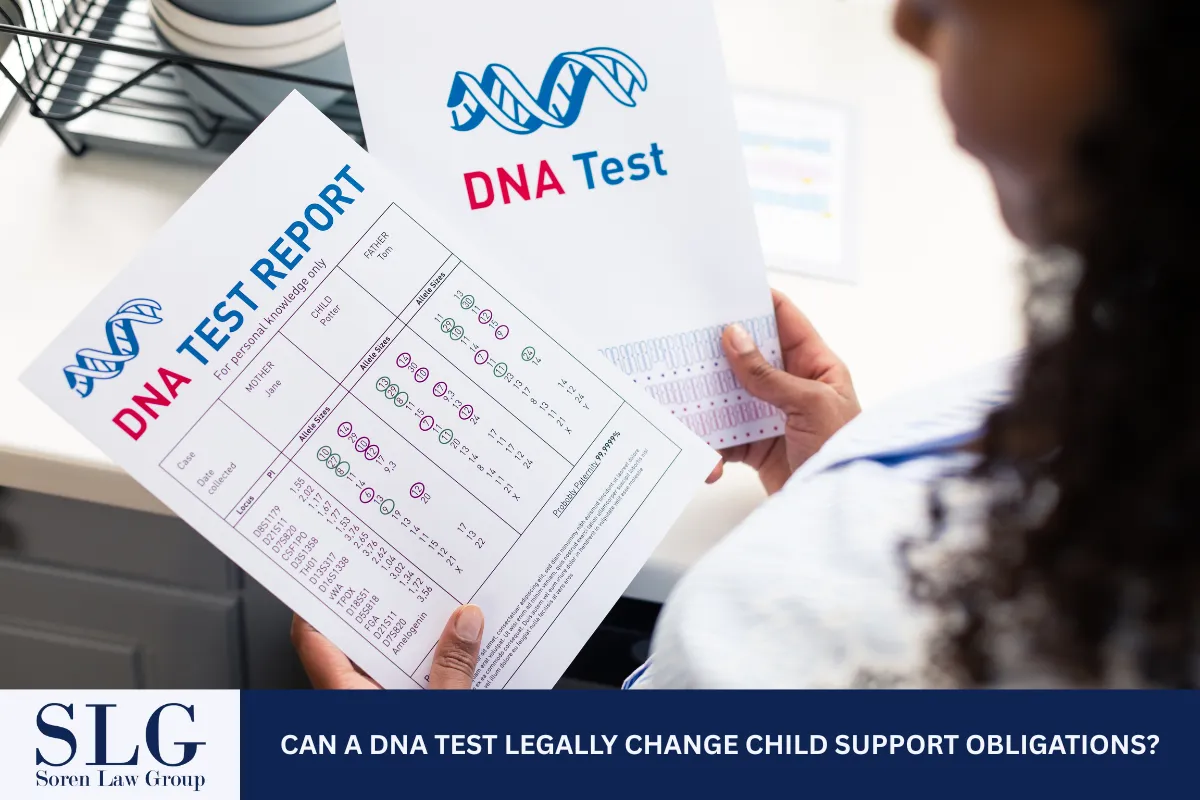
DNA testing can have a significant impact on child support responsibilities, but its power is not absolute. While a DNA test may confirm that a man is not the biological father, this evidence alone does not automatically cancel existing child support obligations, especially if legal paternity has already been established.
In cases where no legal paternity has been determined, a DNA test can prevent future child support orders by proving that the man is not the biological father. The court may dismiss a petition for support if the genetic evidence clearly shows no biological connection.
However, when legal paternity has already been acknowledged—either through an AOP or a prior court ruling—a DNA test does not immediately nullify the support order. In such situations, the man must file a petition to disestablish paternity and formally request relief from ongoing support. The court will review the request based on various legal factors, including the timeliness of the challenge and the child’s best interests.
Revoking Paternity After Signing an Acknowledgment

In New York, revoking an Acknowledgment of Paternity is possible but requires strict adherence to procedural rules. Once an AOP is signed, it becomes legally binding 60 days after the date of signing. If a man wishes to revoke it within that period, he can do so without needing to provide a reason.
Beyond the 60-day window, revocation becomes much more complex. The individual must petition the court and provide evidence of fraud, duress, or a material mistake of fact at the time of signing. A common argument is that the man believed he was the biological father based on information given by the mother, only to later discover through DNA testing that he is not.
Even with compelling evidence, the court is not obligated to reverse the acknowledgment. The judge will evaluate whether maintaining the father-child legal relationship serves the child’s emotional, financial, and social stability. Suppose the child has bonded with the presumed father or has depended on his support. In such cases, the court may rule against revoking paternity, even in the face of scientific evidence.
Challenging Presumed Paternity in Marriage
In situations where a child is born during a marriage, New York law presumes that the husband is the legal father. This presumption is strong and is intended to protect the family unit. Challenging this legal assumption requires a formal court proceeding and substantial evidence to support it.
To dispute presumed paternity, either spouse or a third party must file a motion in Family Court. DNA testing is often a central component in these cases. Still, it is not the only factor the court considers in making its decision. Timing, intentions of the parties, and the nature of the family relationship all influence the court’s decision.
The longer a presumed father has acted in that role—especially by supporting the child financially and emotionally—the less likely the court is to allow a reversal. In many cases, even irrefutable DNA evidence may not be enough to end the legal relationship or child support duties.
Child’s Best Interest Doctrine in Paternity Disputes

In every family law case in New York, including those involving paternity, the guiding principle is the best interest of the child. This doctrine prioritizes the child’s welfare above all else, including biological connections or financial disputes between adults.
Courts in Staten Island weigh many factors when applying this principle. These include the child’s emotional ties to the presumed father, the level of involvement in the child’s upbringing, the stability of the home, and the psychological impact of disrupting existing relationships. The presence or absence of biological ties is just one part of this broader evaluation.
Because of this doctrine, legal decisions about child support or paternity are rarely based on DNA results alone. Even if a man can prove he is not the biological father, the court may decide it is still in the child’s best interest for him to remain the legal father—and therefore remain financially responsible.
Legal Deadlines and Statutes of Limitations for Paternity Cases
The timing of a paternity challenge is crucial. New York imposes deadlines, known as statutes of limitations, that restrict when legal actions can be taken to contest paternity or revoke an acknowledgment of paternity.
For men seeking to disestablish paternity, the window is typically within two years of discovering new information—such as the results of a DNA test. If too much time passes, the court may refuse to hear the case, citing the potential harm to the child or the need for finality in legal relationships.
Additionally, the longer a man has acted as the child’s father, the more difficult it becomes to undo that role. A delay in taking legal action can be interpreted by the court as an acceptance of the fatherhood status, further reducing the chances of a successful challenge.
How a Paternity Law Attorney Can Help in Staten Island
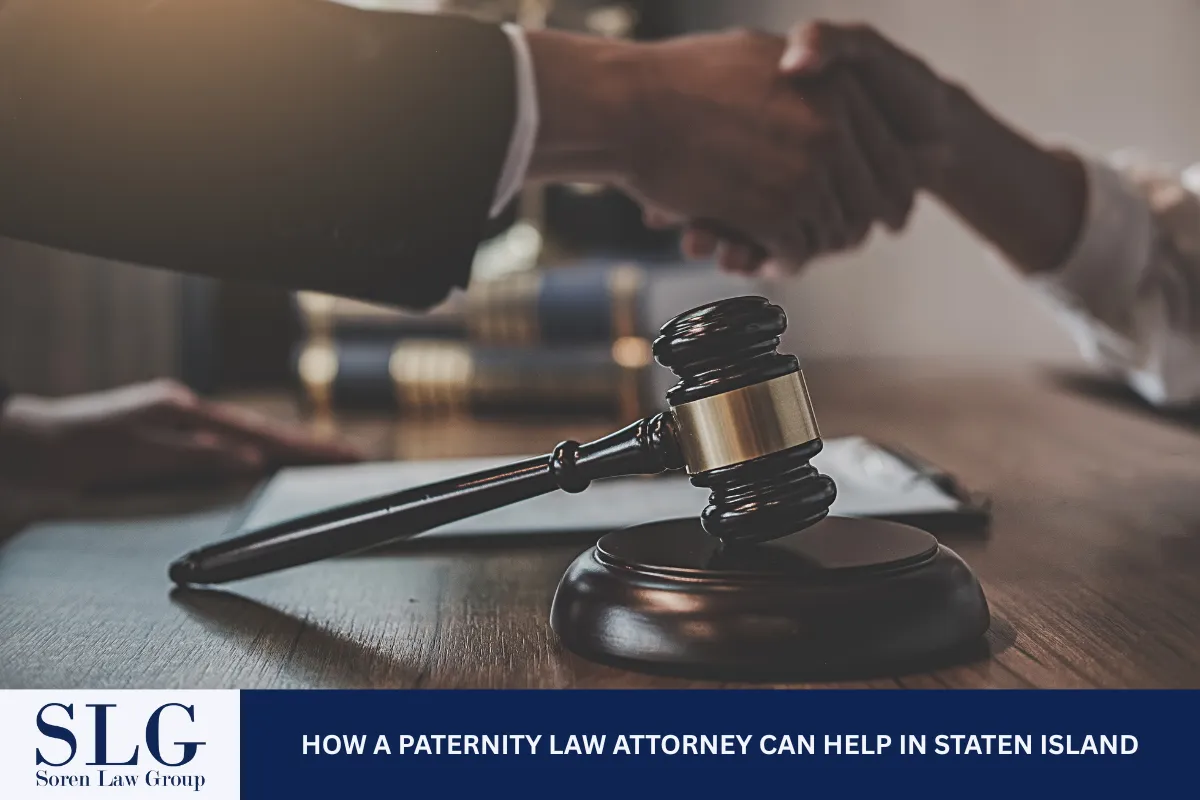
Handling a paternity case without professional legal guidance is extremely risky. A paternity law attorney offers essential services to individuals navigating questions about DNA testing, child support, and establishing legal fatherhood in Staten Island.
An attorney helps ensure that all necessary petitions are filed correctly and within the legal deadlines. They interpret DNA results, represent clients in Family Court hearings, and build legal arguments that align with New York statutes and case law. They also explain complex legal terms and prepare clients for the emotional realities of paternity disputes.
Whether seeking to establish paternity, contest an acknowledgment, or modify child support, having a lawyer with specific experience in Staten Island’s family courts increases the chances of a fair and lawful resolution.
Legal Consequences of Ignoring Paternity or Child Support Orders
Failure to respond to legal notices or court summonses in paternity cases can result in serious consequences. A man who does not appear in court when ordered to do so may be declared the legal father by default. This means he may be held financially responsible for a child even without DNA confirmation.
Once a support order is in place, non-payment can result in enforcement actions such as wage garnishment, property liens, suspension of driving privileges, or even imprisonment. The legal system in Staten Island is structured to prioritize the needs of the child, and courts act swiftly to address non-compliance.
Ignoring the legal process not only limits your ability to present your side but also locks you into obligations that may have been avoidable with timely legal action.
Legal Process for Requesting a DNA Test in Staten Island
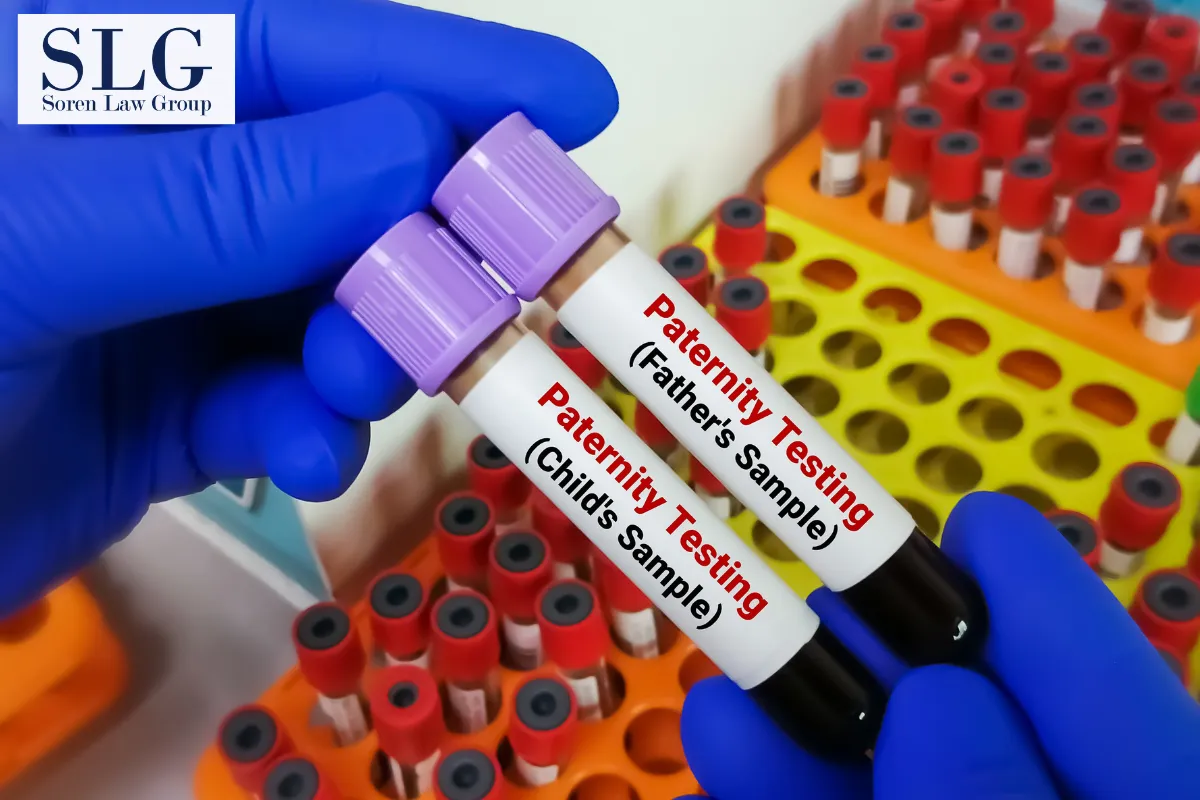
Requesting a DNA test as part of a paternity case in Staten Island involves filing a formal petition with the Family Court. The petitioner must explain the reason for the request and provide any supporting evidence or documentation to substantiate it. The court may then order genetic testing to determine biological parentage.
The test must be conducted by an accredited laboratory approved by the court. Once results are available, they are submitted directly to the judge for consideration. Depending on the outcome, the court may either establish or dismiss legal paternity, which directly impacts any current or future child support obligations.
Legal representation during this process ensures that all steps are followed correctly and that the evidence is presented in a manner that supports your legal goals.
Final Thoughts on DNA Testing and Child Support Laws in NY
Determining whether a DNA test can stop child support is not a simple yes-or-no matter. The answer depends heavily on how and when legal paternity was established, what steps were taken to challenge it, and how the court interprets the best interest of the child. While DNA evidence is powerful, it is not the only factor that influences court decisions.
For anyone in Staten Island dealing with paternity and support issues, understanding the distinction between biological and legal fatherhood is critical. These are not just legal matters—they are deeply personal, affecting your relationships, responsibilities, and long-term future. Taking proactive steps, such as consulting with an experienced family law professional, is crucial to protecting your rights.
Staten Island Paternity Law Attorney – Soren Law Group

Soren Law Group understands that paternity and child support issues can be overwhelming, emotional, and legally complex. Our team is committed to helping individuals and families in Staten Island find clarity and resolution. With a strong focus on family law, we offer straightforward legal support tailored to your unique circumstances. Whether you’re facing a dispute over paternity or looking to modify a child support order, we’re here to help you make informed decisions with confidence.
From establishing paternity through DNA testing to contesting or enforcing child support, we guide you through each step of the legal process. Our attorneys are experienced in handling sensitive matters with care while vigorously defending your rights. At every stage, we prioritize your best interests and strive to find a solution that meets your needs. To speak with an attorney, call us at (718) 815-4500!
Frequently Asked Questions About Paternity and Child Support in Staten Island
1. Can a man remove his name from a birth certificate after a paternity test proves he is not the father?
Yes, but only through formal legal action. In New York, if a paternity test or genetic testing confirms mistaken paternity, the man can petition the Family Court to have his name removed from the child’s birth certificate. However, the court doesn’t base its decision solely on the genetic test. One of the key factors is the existing parent-child relationship. If the court believes removing legal paternity could harm the child emotionally or financially, it may deny the request. The court also considers whether the man was misled or voluntarily acknowledged paternity. Each type of situation may require different evidence and procedures. To move forward, it’s best to consult a family law attorney familiar with paternity establishment and the family law paternity code in Staten Island. This process can involve hearings, legal documentation, and potentially a termination order, especially if minor children are involved.
2. How does a DNA test affect child support payments in a contested paternity case?
A DNA test plays a major role but is not the sole factor in determining the outcome of child support payments in New York. If a man has not yet been legally recognized as the father, a court-ordered genetic test can prevent him from being held financially responsible if he’s not the biological parent; however, in cases where paternity has already been established—such as by signing a paternity agreement or being named on the birth certificate—the test results alone may not cancel existing obligations. The court evaluates the type of paternity dispute, timing of the test, the existence of a strong parent-child relationship, and the best interests of the child. Once paternity establishment occurs, ending support requires more than just test results. A knowledgeable paternity law attorney can explain available legal options and assist with requesting changes through the correct legal framework.
3. What should I do if I discover years later that I’m not the biological father of a child I’ve been supporting?
This type of situation happens more often than people realize and requires careful legal advice. Even with a new DNA test, you can’t just stop making child support payments without going through the courts. In Staten Island, a man must file a petition for termination of paternity, often backed by genetic testing. However, suppose a strong parent-child relationship has already been formed, or the child considers you a parent. In that case, the court might still require you to continue support. Courts will review your case using the family law paternity code and decide based on the child’s best interests. You may need to appear in a pretrial hearing, especially if there’s resistance from the child’s other legal guardian. A family law attorney experienced in paternity issues can help you gather evidence and represent your case effectively. There are various legal options, but timing and documentation are crucial.
4. Can paternity be established without going to court in New York?
Yes, paternity establishment can occur without court involvement when both parents agree. In such cases, an Acknowledgment of Paternity (AOP) form can be signed voluntarily at the hospital or later at a local child support office. This signed document becomes legally binding 60 days after its execution. It gives the father legal parental rights, including potential child custody and visitation. It also makes him responsible for types of child support. If doubts about the biological connection arise, the father must challenge the form within the legal timeframe. Once that window closes, reversing it may require proving mistaken paternity and undergoing genetic testing. In some instances, the court may deny a reversal based on the best interests of the minor children. If there’s any uncertainty, it’s best to consult a paternity law attorney before signing. Without proper guidance, people often overlook important legal options that can significantly impact their long-term parental responsibilities.
5. What happens to child support if a couple divorces and a paternity issue is later discovered?
In divorce proceedings involving minor children, child support payments are usually based on the assumption that the husband is the biological father. If a paternity issue arises afterward—say, through a DNA test—the outcome depends on how paternity was originally established. Suppose the man signed the child’s birth certificate or was presumed the father during the marriage. In such cases, the court may continue to enforce support, even if genetic testing reveals that the child is not the biological parent. This is especially likely if the child has relied on the father for emotional or financial support.
In some cases, the court may agree to revisit the paternity agreement, particularly if new evidence surfaces within a reasonable time. However, this requires navigating a complex legal framework and possibly seeking a termination order. A family law attorney experienced in divorce and paternity law can help evaluate the facts, attend court hearings, and recommend the most suitable legal options based on your specific situation.
Read more: Top Reasons to Hire a Staten Island Prenuptial Lawyer for a Stronger Agreement

